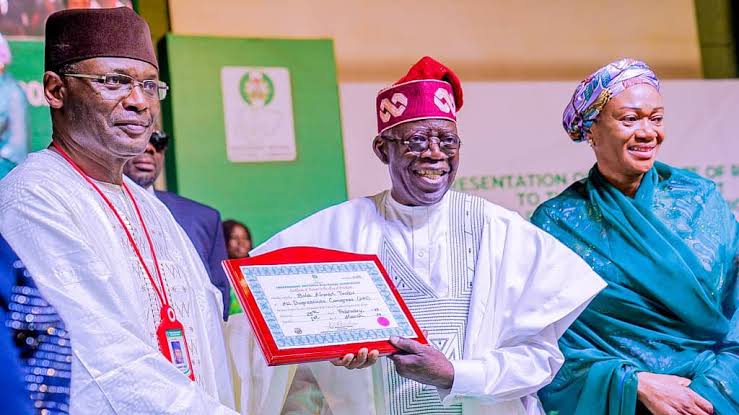
Concerns are growing over the credibility of the upcoming 2027 general elections as fresh revelations from insiders within the Independent National Electoral Commission (INEC) suggest that a coordinated plot to manipulate the process is already underway.
Unless urgent corrective measures are instituted by the National Council of State (NCoS), civil society organisations, the international community, and both local and foreign election observers, the polls could become the most compromised in the nation’s democratic history, multiple sources have confirmed.
According to the findings, powerful politicians have allegedly infiltrated INEC’s structures, designing a multifaceted rigging agenda to compromise the integrity of the exercise.
The scheme, described by insiders as a “cocktail of manipulations,” reportedly includes creating dual sets of original result forms, tampering with the Results Viewing Portal (IReV), and manipulating the ongoing voter registration process.
A senior source within INEC explained that the plan involves producing two sets of Form EC8 series — covering polling units (EC8A), wards (EC8B), and local governments (EC8C). One set would be publicly displayed at polling units, while the second set would be secretly deployed to alter outcomes in strategically selected areas.
“The strategy is to manipulate transparency by producing parallel results and manipulating what is uploaded to IReV,” the source told Sunday Vanguard.
Investigations also revealed deliberate breaches of operational protocols, designed to create discrepancies between what is recorded at polling stations and what is electronically transmitted. This, analysts say, exposes structural vulnerabilities that undermine the very technology intended to safeguard electoral credibility.
Both IReV and the Bimodal Voter Accreditation System (BVAS), the twin technologies championed as safeguards in the 2023 general elections, are reportedly being tested for potential exploitation.
One insider alleged that during off-cycle governorship elections in Kogi (November 2023), Ondo (November 2024), and Edo (September 2024), pre-prepared results were uploaded to IReV before the close of voting.
Civil society groups monitoring the Edo election also documented instances where the number of votes declared exceeded accredited voter totals, clear signs of electoral manipulation. Similar anomalies were observed during by-elections held after 2023, including unexplained delays and suspensions in the upload of results.
In some constituencies, parallel “original” sheets allegedly prepared by partisan operatives were used to certify results.
Beyond result management, the voter registration process itself has come under scrutiny. Findings show that some newly created polling units are deliberately populated with low voter numbers, creating artificial strongholds where partisan supporters can be concentrated, while making it difficult for rival parties to mobilise effectively.
Amid these revelations, fresh political manoeuvres are also emerging around the leadership of INEC. It is gathered that some influential figures are considering lobbying for a “suitable replacement” for the current Chairman, Prof. Mahmood Yakubu. A shortlist of names, including some former National Commissioners and Resident Electoral Commissioners (RECs), is reportedly in circulation.
However, critics argue that many of those being positioned for consideration do not have a clean record from their previous tenures. “Some of these individuals failed to inspire confidence when they served as commissioners,” one source noted.
Under the 1999 Constitution (as amended), the appointment and removal of the INEC Chairman, National Commissioners, and RECs are governed by Section 153(1) and the Third Schedule. These provisions stipulate that such appointments must be made by the President, subject to Senate confirmation, and in consultation with the NCoS.
Despite this, some of President Bola Tinubu’s recent appointments of National Commissioners and RECs did not follow the constitutionally mandated consultation process. These appointees have since been confirmed by the Senate and sworn into office.
